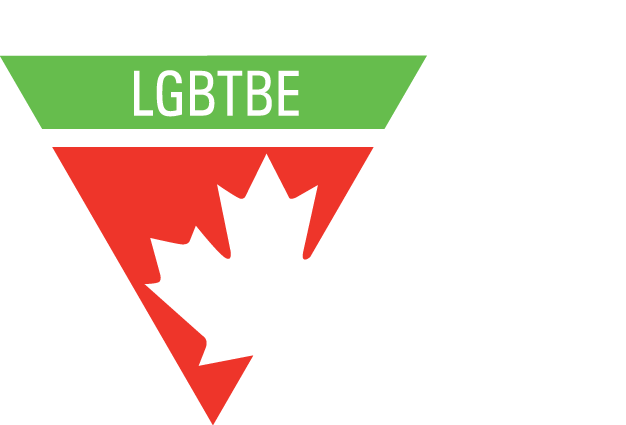
In a rapidly changing global economy, companies face a choice: adapt to shifting social expectations or risk becoming obsolete. Social conservatism—defined here as the resistance to progressive cultural change, including opposition to diversity initiatives, LGBTQ+ inclusion, gender equity, and modern workplace norms—may appear to some as a way to protect traditional values. But from a business standpoint, it’s increasingly clear: social conservatism costs more in the long run.
Talent Drain: Losing the Next Generation of Workers
Gen Z and Millennials—who will make up 75% of the workforce by 2025—are not only more diverse, but they also expect their employers to reflect progressive values. According to a 2022 Deloitte Global Survey, 49% of Gen Z and 44% of Millennials have rejected job opportunities based on personal ethics and company values. A conservative stance on social issues can quickly become a talent repellent.
Moreover, LGBTQ+ inclusive policies are especially important to younger talent. A study by McKinsey found that LGBTQ+ employees in inclusive environments are 1.4 times more likely to be proud to work at their company and 1.5 times more likely to promote their company to others. Losing out on these workers doesn’t just hurt culture—it damages innovation and recruiting pipelines.
Brand Reputation: Values Now Drive Consumer Behavior
Today’s consumers are not just buying products; they’re buying values. A 2022 Edelman Trust Barometer report found that 58% of consumers buy or advocate for brands based on their beliefs. Companies seen as socially regressive or discriminatory face growing boycotts, negative press, and loss of brand equity.
Take the backlash faced by companies that opposed same-sex marriage or took anti-LGBTQ+ stances: several faced significant drops in stock value, customer boycotts, and talent walkouts. In contrast, brands that support inclusive causes—like Ben & Jerry’s, Patagonia, and Salesforce—have not only maintained loyal customer bases but have outperformed their peers in long-term brand trust and consumer advocacy .
Legal and Regulatory Risks in Canada
In Canada, the legal and financial risks of maintaining socially conservative workplace policies are becoming increasingly significant. Federal and provincial human rights codes require employers to provide equal treatment in employment without discrimination based on race, gender identity, sexual orientation, religion, disability, and other protected grounds. Companies that fail to meet these standards face not only legal consequences but also reputational damage.
For example, in British Columbia, the Human Rights Tribunal awarded $176,000 in damages in a 2021 case where an employee experienced discrimination and harassment based on gender identity and expression in the workplace [B.C. Human Rights Tribunal, Nelson v. Goodberry Restaurant Group Ltd., 2021 BCHRT 137]. That amount was one of the highest awards for injury to dignity in the Tribunal’s history, signaling a clear stance against socially regressive workplace environments.
Meanwhile, federally regulated employers must now comply with the Pay Equity Act and the Employment Equity Act, which require proactive equity measures, annual reporting, and employee consultation. Non-compliance can result in fines, audits, and public scrutiny from the Canadian Human Rights Commission (CHRC). As the CHRC noted in its 2022 Employment Equity Audit Report, organizations failing to meet equity requirements face growing risks not just from regulators, but also from the public and their own workforce.
Additionally, ESG-related regulations in Canada are evolving. The Canadian Securities Administrators (CSA) are increasingly pushing for disclosure of diversity metrics and workplace equity policies for publicly traded companies. Inaction or outdated stances on inclusion can negatively affect investor confidence and eligibility for ESG-focused capital.
The takeaway: socially conservative policies not only increase the risk of human rights complaints, but also put companies on the wrong side of evolving Canadian law and investment standards.
In the United States, social conservatism often results in the absence or reversal of inclusion policies, which can open the door to lawsuits, government fines, and compliance issues. Discrimination lawsuits cost U.S. businesses over $64 million in EEOC settlements alone in 2020. These costs don’t include legal fees, brand damage, or internal disruption.
As more jurisdictions pass regulations mandating equal opportunity, transparency, and diversity disclosures (such as the EU Corporate Sustainability Reporting Directive or California’s diversity mandates), socially conservative companies risk noncompliance, fines, and exclusion from ESG investment indices.
Lagging Innovation and Adaptability
Companies that resist social change often resist other forms of change, too. A study by Boston Consulting Group found that companies with above-average diversity on management teams had innovation revenue 19 percentage points higher than those with below-average diversity.
Socially conservative companies tend to create more homogenous leadership structures, which reduces the range of ideas and approaches considered in decision-making. This not only stifles innovation but also limits a company’s ability to pivot quickly in crisis—an essential trait in today’s volatile economy.
Investment Risks and ESG Ratings
Institutional investors are increasingly scrutinizing companies for Environmental, Social, and Governance (ESG) performance. Companies that lag on social metrics—especially diversity, equity, and inclusion—are less likely to be included in ESG portfolios, which now represent over $35 trillion in assets under management globally.
In a socially conservative environment, companies are less likely to meet these benchmarks, which limits access to capital, decreases share value, and exposes them to activist shareholder campaigns.
Social Conservatism Is a Business Liability
In today’s environment, neutrality is no longer an option—and regression is a risk. While some leaders may see social conservatism as a way to preserve stability or tradition, the evidence is overwhelming: the financial cost of resisting inclusion, diversity, and progressive workplace values far outweighs any perceived short-term gain.
Forward-thinking companies are recognizing that doing the right thing and doing the profitable thing can—and must—be the same. Social progress isn’t just good ethics; it’s smart economics.




Recent Comments